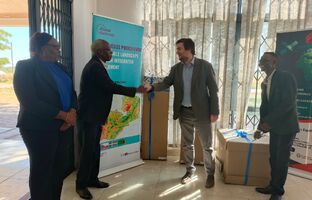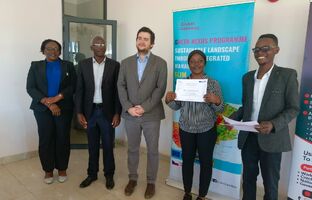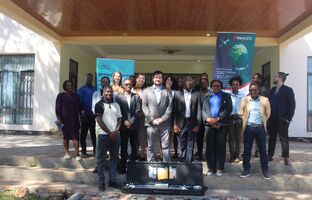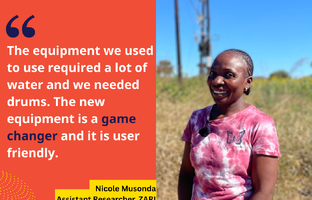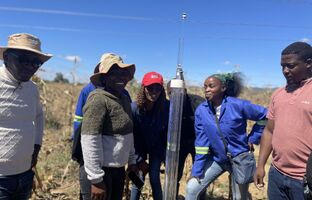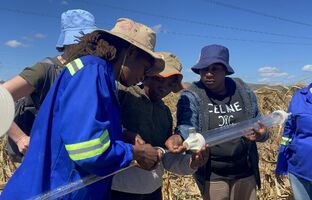In the face of worsening land degradation threatening food security and ecosystems across Zambia, a new wave of empowered women scientists is emerging as a vital force for change. Equipped with advanced skills and tools, female soil technicians are leading efforts to monitor, assess, and restore the nation’s soil health — a key pillar in Zambia’s sustainable development vision.
“These women are not only using cutting-edge soil testing equipment, but they are pioneering Zambia’s drive toward climate-smart agriculture and data-driven land interventions,” said a representative from the Sustainable Landscape through Integrated Management (SLIM) project.
The trained experts now play a critical role in gathering precise soil data — such as infiltration rates and soil carbon content — which feed into Zambia’s national land degradation monitoring system. This system enables policymakers to map high-risk areas and implement targeted interventions that protect farmland, boost crop yields, and improve climate resilience.
“Knowing the type and condition of our soils helps us guide farmers on what to plant, where, and how — especially with the climate changes Zambia is facing,” explained Mwayi Chimsitu, a ZARI soil physicist. “It’s empowering to know our work directly contributes to better food security.”
Applying Science on the Ground
In May 2025, the SLIM project facilitated intensive training and fieldwork for ZARI soil technicians — with deliberate emphasis on female participation. The sessions included the practical application of two essential tools:
- The Guelph Permeameter Kit – measures how quickly water infiltrates different soil types, key for assessing irrigation potential and erosion risks.
- The Digital Soil Oven – enables measurement of soil carbon content, critical for understanding fertility and contributing to Zambia’s carbon accounting systems.
Introducing these tools into Zambia’s soil research toolkit represents a major leap forward in building local capacity to assess soil erodibility and combat land degradation.
“The permeameter supports reliable field-based measurements of infiltration capacity, while the drying oven enables accurate laboratory analysis of soil organic carbon—an essential factor affecting soil structure, cohesion, and vulnerability to erosion,” explained Darina Heřmanovská from All for Soil. “These tools lay the groundwork for evidence-based interventions and can also be integrated into future academic training, student research, and national monitoring initiatives aimed at sustainable land management and climate adaptation.”
Field exercises in Chikankata District and hands-on training at ZARI headquarters gave participants practical skills in collecting and interpreting data for soil erodibility calculations. These measurements contribute to the updated soil degradation maps in Zambia, which were initially developed as part of last year’s baseline mapping and are now expanded with new data from soil sampling and ground truthing. As part of this process, the international Universal Soil Loss Equation (USLE) method is applied to estimate soil loss from water erosion.
“The benefits of the Guelph Permeameter lie in its ability to collect K-factor data directly in the field — a key variable in the USLE model,” noted Veronika Jelínková from All for Soil, who helped facilitate the training. “This gives us precise information about soil infiltration capacity, allowing authorities to identify erosion-prone areas and take early action to protect agricultural land and livelihoods.”
“This equipment allows us to be more precise in our work, and lets us know whether our soil is still healthy and what crops we can grow,” added Nicole Musonda, a soil technician involved in the training. “It helps us achieve our mandate at ZARI.”
Supporting a Bigger Vision
The fieldwork and training align with Zambia’s Green Nexus approach of integrating water, energy, and food security through sustainable land management. Healthy soils are at the heart of this vision, influencing everything from agricultural productivity to water retention and carbon storage.
To support this vision, the training and equipment were provided under the SLIM project, co-funded by the European Union, Sweden, and the Czech Republic. Implemented by the Czech Development Agency, SLIM works closely with national institutions such as ZARI and the National Remote Sensing Centre, as well as a consortium of partners.
Looking ahead, further soil data collection and continued collaboration between SLIM partners will deepen Zambia’s capacity for sustainable land management.



